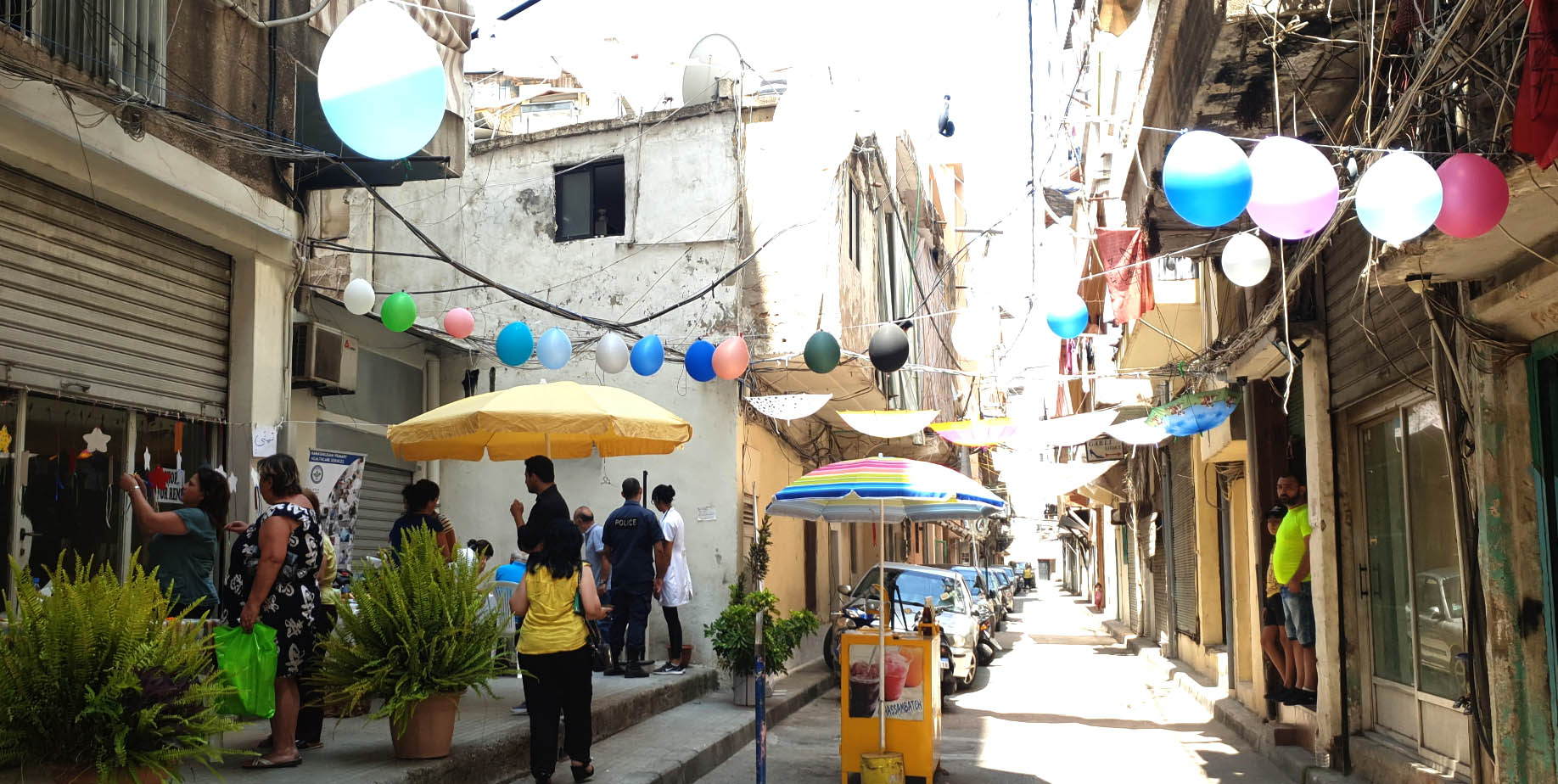Beirut, 29 July 2019 - An interesting and promising urban development initiative was launched recently in Marash-Bourj Hammoud street in Beirut. This project, led by UN-Habitat and funded by Polish Embassy in close coordination with the Polish Center for International Aid (PCPM) and Bourj Hammoud Municipality, aims at enhancing the environmental conditions of host/refugee population, improving the quality of life, and supporting stability in the most vulnerable neighborhood in Bourj Hammoud.
The aim of the community visioning event was to promote placemaking and add bright views in the five alleyways of Marash street. The event was based on a participatory approach where the team mobilized the local community to express their needs and aspirations about public space in their neighborhood. This event was preceded by a series of “walkshops” to evaluate the public space through walking and assess the community’s needs through specific tools such as games, interviews, observation. The community visioning event and the three days walkshop were developed and led by Rony Jalkh, Placemaking activist and practitioner and founder of Placemaking MENA (part off Placemaking X Global network), who was contracted by PCPM
The residents and visitors expressed their views through voting; this was achieved by writing their opinion and suggestions about the alleyways, placing a smiley-emoji on their preferred sight from pictures displaced on the wall, adding a wish to the wish-list.
On 19 July, from the early hours of the day, Lebanese, Armenian and non-Armenian residents of different affiliation began to gather in Marash street. The event was festive, with music and games for children. Alongside the event, nurses from Karagheuzian foundation, Nayiri Injeyan and two other Brazilian and Colombian nurses carried out free medical checkups.

Rony Jalkh, mentioned that as a people-centered approach, Placemaking capitalizes on a local community's assets, inspiration and potential, creating good public spaces that promote people's health, happiness and economic well-beingIt also encourages residents to participate and express their ideas.
Lady Manoukian, who leads UN-Habitat’s Urban Governance, explained how the project aims to revive and enhance existing conditions of the buildings and streets wherever needed by engaging with and involving the community.
The project is constituted of three main components, elaborated Wael Sinno, UN-Habitat’s area coordinator of Beirut and Mount Lebanon. The first is the sub-neighborhood upgrade - through the rehabilitation of the buildings’ facades, improving the street safety and accessibility and improving the access to the basic urban services. The second is the introduction of renewable energy by providing the densely-inhabited neighborhood with a Photovoltaic solar system to provide clean electrical power generation, and the third is the cash-for-work, awareness sessions, and capacity buildings to the residents on specific topics.
“This project undertakes social and environmental interventions,” observed George Krikorian, a member of Bourj Hamoud municipality council. He added that “it also aims to revive the streets.”
“People are not always aware of the importance of public space and their rights of having an accessible, safe and inclusive public spaces." added Sinno. "What we need to do is to work on introducing this idea to the residents, building their skills and enhancing a sense of belonging and ownership of residents to such places.”
Article: Lady Manoukian & Wael Sinno
Banner photo: [UN-Habitat/Wael Sinno]